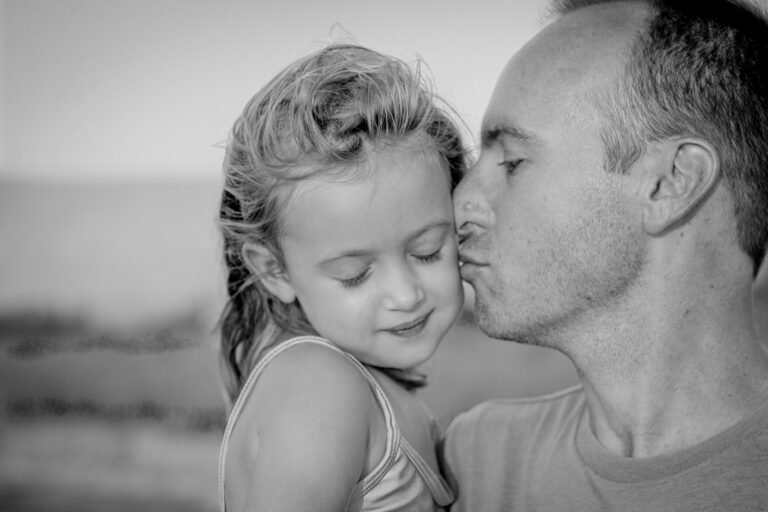Modern parenting: nearly everyone has imagined moments of joy, affection, and spontaneous giggles. Yet, beneath this vibrant exterior, many find their energy sapped, nerves frayed, and patience stretched beyond belief – sometimes day after day, with no respite in sight. Emerging from this relentless pace is a reality that few dare to name aloud: parental burnout symptom. Why do some days feel like a marathon where every tiny setback seems monumental? Is it simply tiredness, or something deeper at play? When sleep, shared duties, and fleeting moments of self-care are not enough, understanding the roots and signs of parental burnout symptom becomes not just relevant, but necessary. Let’s unravel the daily warning signs, the medical explanations behind this syndrome, and practical, compassionate ways to restore balance – for you, your children, and the larger family environment.
What Is Parental Burnout Symptom?
Imagine waking up already tired, where the smallest chore feels like climbing a steep hill. Parental burnout symptom isn’t just “one bad week.” It’s a state marked by intense physical and emotional exhaustion directly related to the pressures and expectations that pile up in family life. Unlike fleeting stress, this exhaustion lingers, drains satisfaction from parenting, and shifts how one connects (or fails to connect) with their children.
This phenomenon is not the same as classic workplace burnout or a generalized episode of depression. Medical research recognizes parental burnout symptom as a standalone entity where the parent’s specific role is at the centre of distress – not the job, not life at large, but the daily reality of parenting. Hallmarks include a feeling of emotional distancing from children, recurring thoughts of inadequacy, and a marked change from how one used to feel about being a parent. Tools like the Parental Burnout Assessment (PBA) offer reliable markers for tracking these symptoms over time, separating them from stress or mood disorders.
Prevalence and Medical Impact
Data suggests that parental burnout symptom affects between 2% and 14% of parents worldwide, with considerably higher rates in societies where traditional shared parenting support systems are eroding. Women – especially mothers – statistically experience this syndrome more due to the multifaceted “mental load” (the invisible but continuous management of school, health, activities, meals, emotional needs). The consequences are far-reaching: exhaustion, feelings of guilt, reduced efficacy, and over time, a weakened parent-child bond.
Children in such families are also impacted, often manifesting behavioural or emotional symptoms themselves. Family tension rises, and satisfaction within couple or sibling relationships falls. Medical science consistently shows that societies investing in communal support and robust mental health networks report lower burnout rates – a strong case for collective care, not only individual resilience.
Recognising Parental Burnout Symptoms in Everyday Life
The Major Warning Signals
How can you differentiate simple tiredness from a genuine parental burnout symptom? Consider these patterns:
- Persistent fatigue: Even after rest, you feel depleted. Ordinary tasks require significant effort.
- Emotional withdrawal: Connections with children become mechanical, lacking warmth or joy; sometimes, parents report interacting only to fulfill basic care.
- Reduced fulfillment: Once joyful experiences – reading stories, playing games, mealtimes – may now spark frustration or no feeling at all.
- Identity shift: Looking back, do you sense that parental instincts or enthusiasm have faded? Parents often describe feeling “like a different person” compared to before.
Additional Indicators
- Chronic headaches, disrupted sleep, frequent digestive upsets
- Short temper, easily irritated by minor provocations
- Mental fog: forgetfulness, confusion, or difficulty concentrating
- Shame, guilt, even fleeting fantasies about running away
- A growing sense of being “trapped” or unable to change the situation
Medically, this pattern is not just psychological; stress hormones, such as cortisol, spike. Over time, the immune system may weaken, leaving parents more vulnerable to physical illnesses.
Stages and Progression of Parental Burnout Symptom
Parental burnout rarely appears suddenly. Instead, it creeps in through a series of stages:
- Growing exhaustion: Both brain and body send signals (e.g., muscle aches, constant yawning, crankiness).
- Detachment: Gradually, parents may engage less, avoid play, or limit conversations to instructions and logistics.
- Declining self-worth: Unrelenting self-criticism (“I’m failing, I’m not good enough”), doubt, and even self-blame become daily companions.
- Risky coping: Some may start seeking escape in work, exercise, social media, or even alcohol and substances, further straining relationships.
Scientific studies spotlight that recovery is slower when these later stages are left unchecked.
Root Causes and Risk Factors
Personal Vulnerabilities
Certain individuals find themselves more susceptible: perfectionists, those with low self-esteem, and parents who struggle with anxiety or difficulty expressing emotions (alexithymia). Mothers continue to shoulder a disproportionate mental load, even when practical chores are shared, contributing to higher vulnerability for parental burnout symptom.
Family and Social Dynamics
- Strained family bonds, frequent marital disagreements, or a child with chronic health issues can escalate stress beyond manageable levels.
- Single-parent families or those lacking reliable social support experience not only higher stress, but also reduced capacity to seek respite.
- Community and cultural perspectives matter: in societies where parenting is seen as an individual responsibility, stigma may surround requests for help, keeping parents stuck in silence.
Gender Differences: Distinct Faces of Parental Burnout Symptom
While both mothers and fathers can endure parental burnout symptom, expressions often differ:
- Mothers, according to data, tend to display more visible emotional distress – tears, irritability, sharp drops in self-worth. Some openly speak about their struggles or actively seek psychosocial support.
- Fathers might mask distress in physical complaints (back pain, insomnia), anger, or excessive focus on work or leisure activities. Some retreat from home life or chase an elusive sense of lost freedom, reducing communication and engagement.
Medical professionals observe that while mothers voice struggles promptly, fathers may be slower to access help due to societal expectations around emotional restraint.
Untreated Parental Burnout Symptom: The Repercussions
Effects on Health and Mental State
Left unchecked, parental burnout symptom can snowball into more serious concerns: development of depression, loss of motivation, chronic pain, and sometimes even suicidal thoughts. The cycle of exhaustion, self-doubt, and irritability feeds itself, deepening the parent’s isolation and vulnerability.
Impact on Children and Family
- Parent-child bonds may weaken, impacting emotional development and security in children.
- Behavioural issues, academic difficulties, and mental health concerns are more likely in children living in a high-stress parental environment.
- Couple relationships suffer: intimacy wanes, misunderstandings multiply, family harmony frays at the edges.
Spotting Your Own Parental Burnout Symptoms: Self-Assessment Tips
Honest self-inquiry is the first medicine. Have a go at these steps:
- Monitor your energy. Is exhaustion ever-present, regardless of sleep?
- Reflect on your enjoyment. Do old joys now feel like chores?
- Are outbursts or frustration rising unexpectedly?
- Standardised scales like the Parental Burnout Assessment (PBA) or Inventory (PBI) can provide clear feedback. If scribbling in a journal or confiding in a close friend makes patterns emerge, you’re already on your way to understanding.
- Importantly, if despair deepens, symptoms linger, or you worry about depression or anxiety, consider consulting a medical or mental health professional.
Strategies: Managing and Recovering from Parental Burnout Symptom
Immediate Relief Measures
First, prioritise sleep and basic rest – no fancy regime, just giving your body permission to recharge. Open up with your partner about what’s doable and delegate wherever possible. Accept practical help: a meal cooked, some childcare, a quick household chore. Set small, clear boundaries: what can wait, can wait. Even a shared laugh with your child, though fleeting, rebuilds connection.
Long-Term Healing and Prevention
- Build a network (family, friends, support groups, even online communities).
- Lower the bar: “good enough” parenting is not just okay, it’s healthy.
- Introduce mindfulness, stress management, or gentle hobbies—little moments count.
- Learn to ask for help: support groups for parents, professional counselling, or resilience training can transform chronic burnout symptom into new energy and confidence.
Medical professionals consistently highlight the value of self-compassion in this process: beating yourself up only compounds the exhaustion.
Professional and Community Resources
If symptoms persist, therapists specialising in parental fatigue or family dynamics can address perfectionism, strengthen coping, and repair damaged confidence. Parenting workshops, clinics, and phone helplines offer both emotional validation and practical tips. For bigger hurdles, respite care options or structured parent groups provide necessary breathing space.
Supporting Other Parents: A Culture of Empathy
Listening, with empathy and without judgment, can make all the difference. Offer a helping hand—child-minding, a home-cooked meal, handling school drops—little gestures count hugely. By talking openly about parental burnout symptom, stigma fades, and more parents feel safe to reach out. Encourage professional support if distress lingers, always respecting the parent’s pace and choices. Every act of kindness strengthens the network that all families need.
Key Takeaways
- Parental burnout symptom describes a persistent state of exhaustion, emotional withdrawal, and decreased satisfaction, specifically rooted in the parenting role.
- Early detection matters: Symptoms such as feeling overwhelmed, detachment, and self-criticism should not be dismissed.
- Both personal traits (perfectionism, low self-esteem) and family or social factors contribute to risk, with mothers statistically more affected but fathers also impacted.
- Untreated parental burnout symptom impacts both parent and child, straining family cohesion and potentially leading to significant mental health challenges.
- Honest tracking, practical boundaries, and open communication are the foundations of prevention and recovery.
- Professional and community resources exist to support healing and maintain family wellbeing, strengthening resilience in the process.
- For extra help and free health tools tailored for parents, download the application Heloa for smart advice and easy-to-use child health questionnaires.
Questions Parents Ask
Can parental burnout affect the relationship between partners?
Certainly. Parental burnout symptom often brings about more misunderstandings and emotional distance between partners. Fatigue makes small disagreements feel larger, and affection may wane. Speaking openly about feelings, sharing responsibilities, and seeking small pockets of togetherness—even if brief—can help partners stay connected. Professional or family support may also offer fresh perspectives and practical help for couples feeling stretched.
What are effective ways to prevent parental burnout before it starts?
A few proactive habits go a long way in fending off parental burnout symptom. Ensure you get enough sleep and make regular space—even five minutes—for something enjoyable daily. Sharing parenting duties, asking for help from trusted contacts, and lowering unrealistic standards prevent unnecessary pressure. Remember, community—friends, family, or parent groups—reduces feelings of isolation and helps you manage stress more confidently.
How can I talk to my children about my feelings of exhaustion or stress?
Explaining parental burnout symptom to children can be done gently, in words they understand. For example, you might say, “Today, I am a bit tired, but I still love spending time with you.” This keeps the conversation honest and models that emotions are a regular part of family life. Encouraging children to share their thoughts or feelings in return creates a supportive environment, helping everyone feel heard and reassured.









